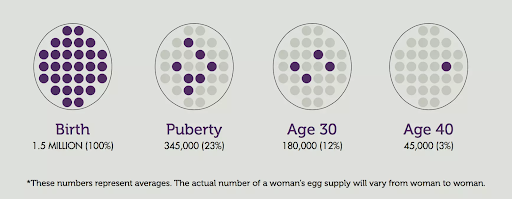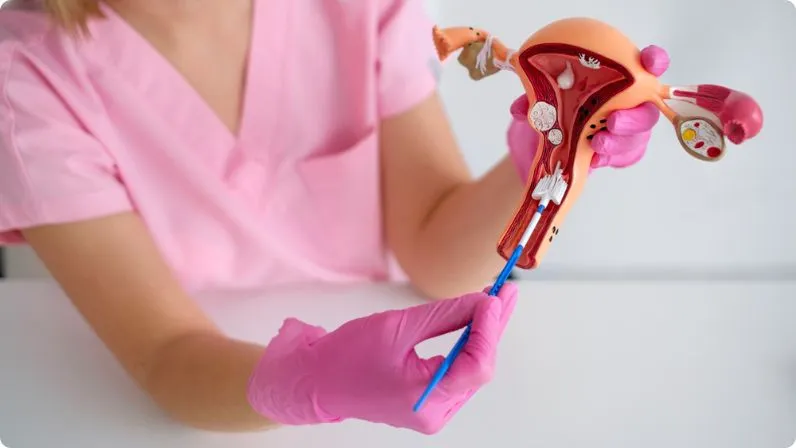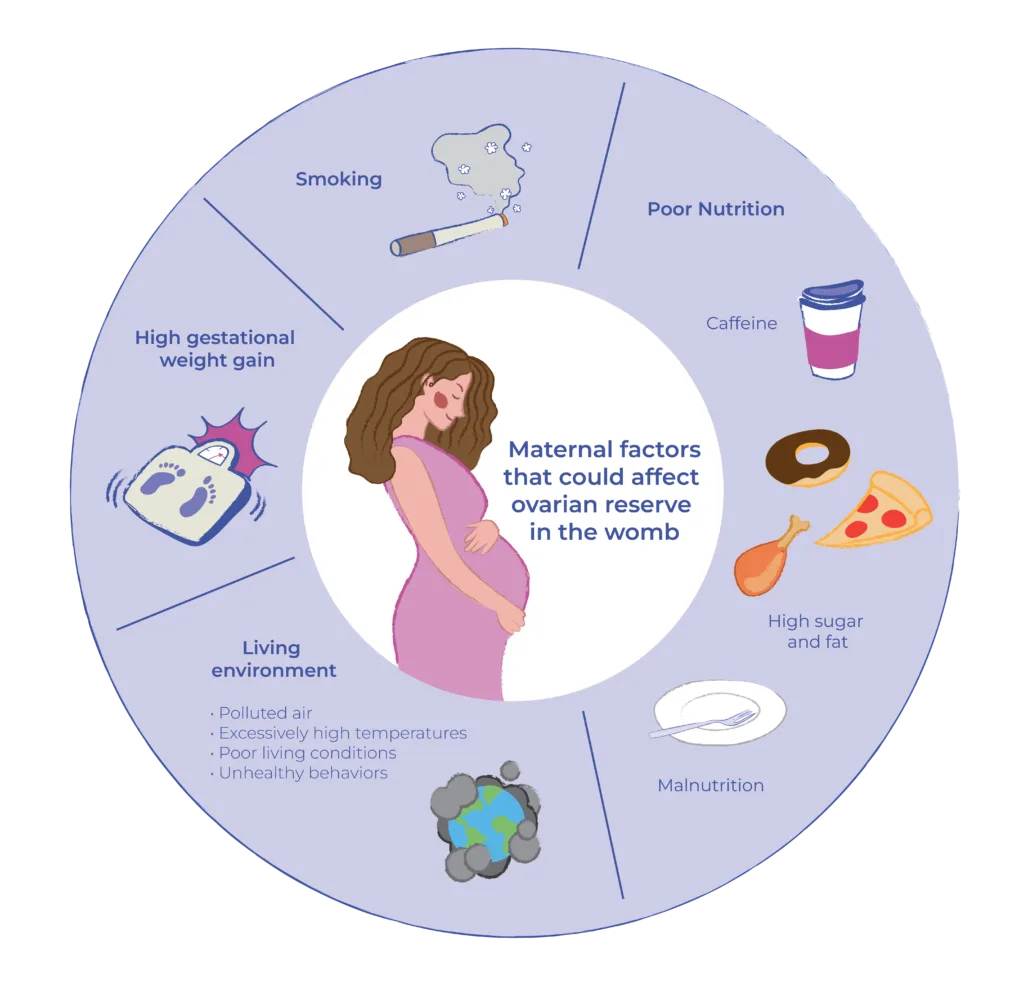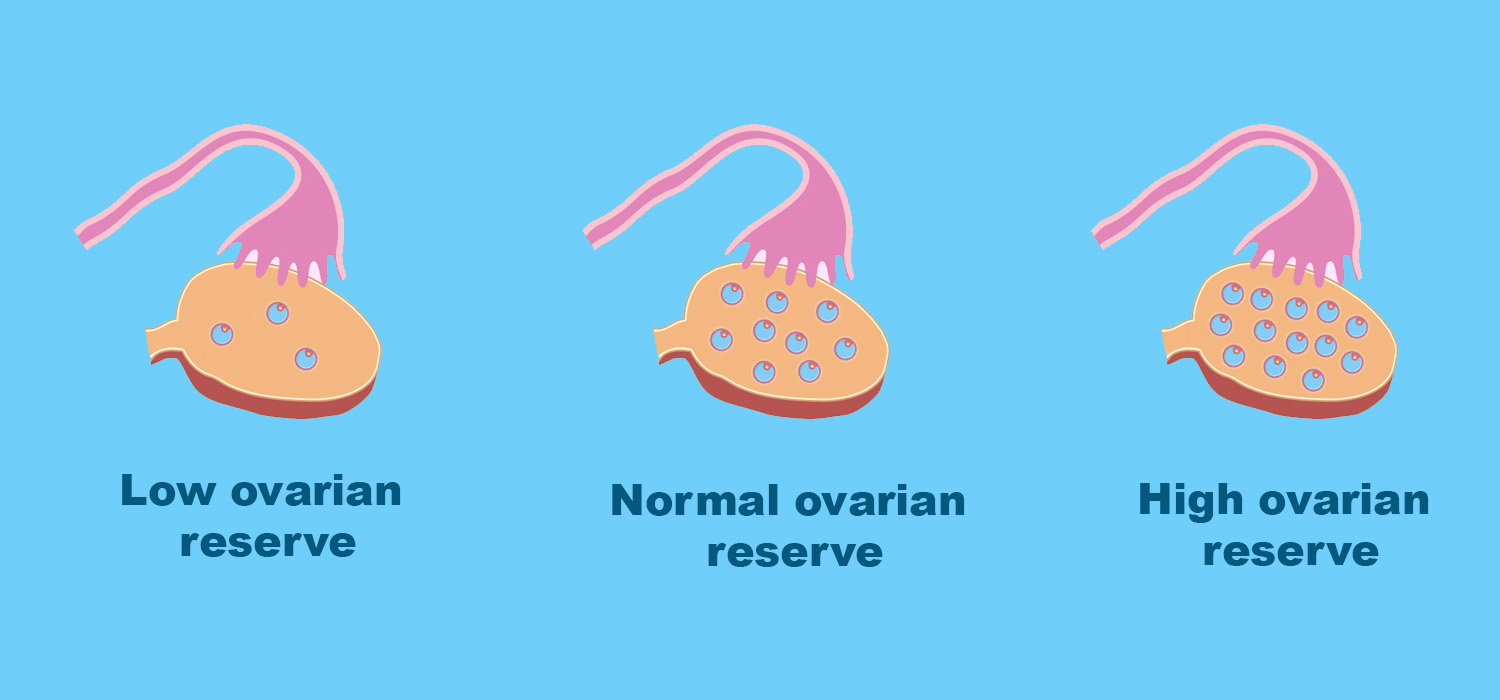Diminished Ovarian Reserve (DOR)
At Mamata Fertility Hospital in Secunderabad, we understand that your fertility is a precious part of your life. Facing challenges like Diminished Ovarian Reserve (DOR) can bring uncertainty and questions, but you are not alone. Our team is here to guide you with compassion and expertise.
This guide will explain what DOR is, how it affects your health and fertility, and what steps you can take to manage the condition. With the right support, women with DOR can find hope and achieve their goals for fertility and reproductive health.
For Appointments, Please Call:
More On Diminished Ovarian Reserve (DOR)
What is Diminished Ovarian Reserve (DOR)?
Diminished Ovarian Reserve (DOR) occurs when a woman’s ovaries have fewer eggs (or lower-quality eggs) than expected for her age. This condition can affect a woman’s ability to conceive naturally.
Understanding the Basics
Every woman is born with a certain number of eggs in her ovaries, known as the ovarian reserve. This number decreases over time, especially as a woman approaches her late 30s and 40s. For women with DOR, this decline happens earlier or more rapidly than usual.
DOR does not always mean infertility, but it can make it harder to get pregnant. It may also impact the success of fertility treatments like in vitro fertilization (IVF).

Is DOR the Same as Early Menopause?
No, DOR is different from early menopause. Women with DOR usually still have menstrual cycles, though they may be irregular. Early menopause, on the other hand, means that periods have stopped completely.

Causes of Diminished Ovarian Reserve

There are several potential causes of DOR, including:
1. Natural Aging
- The most common cause of DOR is age. Around age 35, a woman’s number of eggs begins to decline more rapidly.
2. Genetic Factors
- Some women may inherit a tendency for a reduced ovarian reserve due to their genes.
3. Medical Conditions
- Certain conditions, like endometriosis or autoimmune diseases, can damage the ovaries.
- Chromosomal abnormalities, such as Turner syndrome, may also lead to DOR.
4. Cancer Treatments
- Chemotherapy and radiation therapy can harm ovarian tissue and decrease the egg count.
5. Lifestyle Factors
- Smoking and exposure to environmental toxins may accelerate ovarian aging.
6. Surgery
- Surgeries that remove part of the ovaries (e.g., for cyst removal) can reduce ovarian reserve.
Sometimes, the cause of DOR is unknown, making it essential to consult a specialist for individualized care.

Signs and Symptoms
The signs of DOR can vary, and some women may not experience obvious symptoms until trying to conceive. Key indicators include:
Common Symptoms
- Irregular Periods
-
- Menstrual cycles may come less often or stop altogether.
-
- Difficulty with Conception
-
- Fertility issues are often the first sign of DOR.
-
- Shorter Menstrual Cycles
-
- Cycles may become shorter than 21 days.
-
Other Symptoms
-
- Hormonal changes, such as lower estrogen levels, may cause hot flashes or night sweats.
- Mood swings or feelings of anxiety related to fertility challenges.
If you notice these symptoms, a fertility expert can help assess your ovarian reserve.
Diagnosing Diminished Ovarian Reserve
Diagnosing DOR involves a combination of medical history, physical examination, and advanced testing. At Mamata Fertility Hospital, we use state-of-the-art tools to provide accurate and comprehensive evaluations.
Steps in Diagnosis
- Medical History
Understanding your menstrual cycles, family history, and lifestyle provides valuable insights.
- Ultrasound
An Antral Follicle Count (AFC) is done to count the small follicles in your ovaries. Fewer follicles often indicate lower ovarian reserve.
- Blood Tests
-
- AMH Test (Anti-Müllerian Hormone): Measures the hormone produced by ovarian follicles. A low AMH level signals diminished ovarian reserve.
- FSH Test (Follicle-Stimulating Hormone): Higher-than-normal FSH levels during certain phases of your cycle may indicate DOR.
- Estradiol Levels: Can provide additional information about ovarian function.
Early diagnosis helps create a personalized care plan tailored to your needs.
Treatment Options for Diminished Ovarian Reserve
Though Diminished Ovarian Reserve (DOR) cannot be reversed, several treatment options can help manage its impact on fertility and improve the chances of conception.
At Mamata Fertility Hospital, we provide comprehensive care tailored to each patient’s unique circumstances, aiming to optimize reproductive health.
The foundation of managing DOR often starts with simple but impactful lifestyle changes. Maintaining a balanced diet and healthy weight can positively influence ovarian function. A diet rich in antioxidants, such as fresh vegetables, fruits, nuts, and lean proteins, helps combat oxidative stress, which may impact egg quality.
Regular, moderate exercise also supports overall hormone balance. Avoiding smoking and reducing exposure to environmental toxins are essential steps to minimize further harm to ovarian health.
When it comes to medical therapies, supplements and medications play a crucial role in supporting fertility. For example, Coenzyme Q10 is often recommended to enhance egg quality by improving cellular energy. Hormonal therapies can be prescribed to regulate menstrual cycles, stimulate ovulation, or prepare the body for fertility treatments.
For those pursuing assisted reproductive technologies, options like ovulation-inducing medications can be a first step. These medications encourage the ovaries to produce more eggs during a menstrual cycle, although women with DOR may respond less robustly.
If ovulation stimulation alone is not sufficient, advanced treatments such as in-vitro fertilization (IVF) can offer hope. During IVF, eggs are retrieved from the ovaries and combined with sperm in a laboratory, enhancing the chances of conception.
Women with DOR may also consider intracytoplasmic sperm injection (ICSI), where a single sperm is directly injected into an egg to improve fertilization rates.
For patients facing significant challenges, egg donation opens a promising avenue. Using donor eggs from a healthy, younger donor offers one of the highest success rates for achieving pregnancy in women with DOR. This option has provided countless couples the joy of parenthood, ensuring healthy embryos with excellent potential for implantation and pregnancy.
Another innovative approach is ovarian tissue freezing, primarily offered to younger women needing preservation options, such as before undergoing cancer treatments. This technique involves storing ovarian tissue for future use, allowing patients to preserve their fertility at an early stage.
Ultimately, the choice of treatment depends on the individual’s age, overall health, and fertility goals. With personalized care, a combination of lifestyle, medical, and advanced fertility treatments often results in successful outcomes, bringing hope to women who face the challenges of DOR.
At Mamata Fertility Hospital, we are committed to empowering women with knowledge, compassionate care, and a clear path forward.
Impact on Fertility and Health
Diminished Ovarian Reserve (DOR) has a profound impact on fertility because it reduces both the quantity and quality of eggs available in the ovaries.
For women trying to conceive, this can mean fewer opportunities for successful ovulation, fertilization, and embryo implantation. The eggs that remain are often less viable, which may increase the chances of chromosomal abnormalities, reducing the likelihood of a healthy pregnancy. This decline in egg quality is one of the key reasons women with DOR may experience difficulty conceiving naturally.
For those undergoing fertility treatments like in-vitro fertilization (IVF), DOR can also pose challenges. Producing fewer eggs in response to ovarian stimulation medications often leads to fewer embryos for transfer or freezing.
However, advancements in reproductive technology, combined with personalized medical care, have given many women with DOR the chance to achieve pregnancy successfully.
Beyond fertility, DOR can also affect overall health due to its connection with lower hormonal levels, particularly estrogen. Estrogen plays an important role in maintaining bone density.
When estrogen levels drop as a result of DOR, the risk of developing osteoporosis or brittle bones increases over time. Additionally, estrogen contributes to cardiovascular health, so lower levels might elevate the risk of heart diseases in the future.
Women with DOR may also notice changes in their menstrual cycles, such as shorter and less predictable cycles. This irregularity often signals hormonal fluctuations that may contribute to fatigue, mood swings, and stress.
Psychological concerns, including anxiety and emotional distress, are common in women dealing with challenges related to both fertility and hormonal imbalances. Feelings of frustration and uncertainty around conception may add to the mental burden, highlighting the importance of holistic care that addresses both physical and emotional well-being.
Lifestyle and Dietary Recommendations
While DOR cannot be cured with lifestyle changes alone, healthy habits can improve ovarian function and overall well-being.
1. Dietary Tips
-
- Choose a diet rich in fruits, vegetables, whole grains, and lean proteins.
- Add antioxidant-rich foods, like berries, nuts, and green tea, to fight oxidative stress.
- Limit processed foods and sugary snacks, which can disrupt hormonal balance.
2. Exercise Recommendations
-
- Regular moderate exercise improves blood flow to the ovaries and reduces stress. Focus on low-impact activities like walking, yoga, or swimming.
3. Mind-Body Practices
-
- Managing stress with practices like meditation or deep breathing can help regulate hormones.
4. Stay Hydrated
-
- Drinking enough water supports overall metabolic and reproductive health.
5. Avoid Toxins
-
- Limit exposure to cigarette smoke, excessive caffeine, or harmful environmental chemicals.
Frequently Asked Questions (FAQs)
1. Can DOR be reversed?
No, DOR cannot be reversed, but treatment can help manage symptoms and improve fertility outcomes.
2. Is natural conception possible with DOR?
Yes, natural conception is still possible for some women with DOR. However, consulting a fertility specialist can improve your chances.
3. How is DOR detected early?
Regular medical check-ups, especially if you have irregular periods or trouble conceiving, can catch DOR early. Tests like AMH and AFC provide insights into ovarian reserve.
4. Is DOR related to lifestyle?
While factors like smoking or poor nutrition can accelerate ovarian decline, DOR often has a genetic or unexplained cause.
5. Are fertility treatments successful for DOR?
Many women with DOR achieve pregnancy with treatments like IVF or egg donation. The success depends on age, egg quality, and other factors.
At Mamata Fertility Hospital, we specialize in offering guidance and personalized care for women with Diminished Ovarian Reserve. Whether you’re exploring fertility options or seeking answers to your concerns, our team is here to support you every step of the way. Reach out to schedule a consultation and take the first step toward your reproductive health goals!
Reviewd By

Dr Aarti Deenadayal Tolani
Clinical Director, Scientific In-Charge & Fertility Consultant
MBBS, MS ( OBGYN), FICOG
Expert in Reproductive Endocrinology, Infertility, Advanced Gynaec Ultrasound, and Faculty at Mamata Fertility Hospital.
Blogs and Articles

How does preeclampsia affect the baby?
Learn how preeclampsia affect the baby growth, birth outcomes, and long-term health from Mamata Fertility Hospital Hyderabad.

Is it safe to get pregnant after preeclampsia?
Planning pregnancy after preeclampsia? Learn risks, safety tips, and care strategies from Mamata Fertility Hospital Hyderabad.

Can AI Predict Pregnancy Risk?
Discover how AI predict pregnancy risks, improves maternal care, and shapes safer pregnancies. Learn more from Mamata Fertility Hospital Hyderabad.

